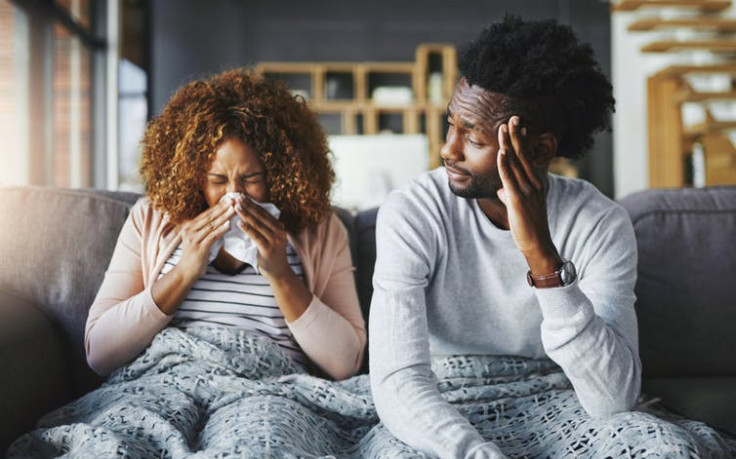I have COVID symptoms. Should I do a test?
Official government guidance still suggests that you should take a test if you think you might have COVID.

You've got a sore throat and feel like you might be coming down with something. A year ago, you would likely have taken a rapid test from your stash, and tested for COVID. But what about now? In many countries you are no longer legally required to self-isolate if you test positive. In the UK and other places, tests are no longer free and many governments have adopted a policy of "living with COVID".
Add to that, you've got a jam-packed weekend of summer social engagements you don't want to miss. While self-isolation is not mandatory, you wouldn't go out and about if you knew you had COVID. You might think it's better not to know.
If you're unsure what to do, you're not alone. Our ongoing research as part of the Public Views During the Coronavirus Pandemic study, shows that many people are not sure what they should be doing if they feel unwell. This includes how to recognise COVID symptoms, whether they should take a test and whether they should self-isolate.

This article is part of Quarter Life, a series about issues affecting those of us in our twenties and thirties. From the challenges of beginning a career and taking care of our mental health, to the excitement of starting a family, adopting a pet or just making friends as an adult. The articles in this series explore the questions and bring answers as we navigate this turbulent period of life.
You may be interested in:
Should I still go on holiday if I have COVID?
Long social distancing: how young adults' habits have changed since COVID
In a recent survey, two-thirds of UK adults said they would be very likely to get tested if they had COVID symptoms. But during the current wave, compared with the last wave in March, government data shows the number of people taking tests has been much lower. This isn't particularly surprising, given that tests are no longer free (except lateral flow tests in Wales until the end of July.
However, in my view, it's clear the best thing to do if you think you might have COVID symptoms is to take a rapid test. If you don't have access to one – or even if you do, and it comes back negative – while you're feeling unwell, it's sensible to stay away from others if you can. Here's why this is still really important.
Sorting out the symptoms
Official government guidance still suggests that you should take a test if you think you might have COVID. And people are advised to try to stay home and avoid contact with others if experiencing symptoms of a respiratory infection, such as COVID or the flu.
Most people know that the main official COVID symptoms include a new, continuous cough, a loss of taste or smell, and a fever. A recent survey found that roughly nine in ten Britons correctly identified these.
If you have any of these symptoms, you should test if you can. Given the high number of cases in the UK at the moment, the likelihood of having COVID is currently relatively high.
Read more: What are the symptoms of omicron?
But as the virus has evolved through the pandemic, more symptoms have been added to the official list. These include shortness of breath, fatigue, muscle aches or pains, lack of appetite, headache, sore throat, stuffy or runny nose, diarrhoea and nausea.
In fact, recent data from the UK's ZOE app (which continues to track people's self-reported COVID symptoms and test results) suggests that, for people who have been vaccinated, the top five most common symptoms are now a runny nose, headache, sneezing, sore throat and persistent cough. So it seems two of the three symptoms we tend to immediately associate with COVID are not actually among the most common symptoms currently.
People are less likely to be able to identify some of these other symptoms as possible COVID symptoms. For example, in the same survey I mentioned above, less than half of people correctly identified feeling nauseated or a loss of appetite as possible COVID symptoms, and only two-thirds identified a blocked or runny nose.

The evolving symptom profile, along with the fact many COVID symptoms are a lot like cold and flu symptoms, makes figuring out whether or not you might have COVID very difficult.
So again, the best advice is, if in doubt, test. Of course, this is easier said than done without access to free test kits. If you have a limited supply, it's particularly useful to test when visiting relatives who are clinically vulnerable, especially if you have any of the symptoms listed above, however mild.
Living with COVID
To my mind, "living with COVID" doesn't mean we can't get back out there and have fun. It just means that in doing so, we should remember some of the basics of what the pandemic has taught us. Keep up with our vaccinations, and when we feel unwell, get a test if possible. That said, regardless of whether it's COVID or something else like the flu, consider keeping away from others and wearing a mask.
The rest of the responsibility lies with governments and organisations. My hope is that the government starts providing free tests again soon. If we want to avoid a major wave in autumn or winter this year, then the first step is catching it early and taking action.
Other important measures include ensuring adequate ventilation in buildings, and supporting more flexible work. A culture of presenteeism – going to work when sick – pervaded before COVID. In the pandemic era and beyond, people need to be supported to work from home if possible, and receive adequate sick pay to discourage them from coming into work when they really are unwell.
Simon Nicholas Williams has received funding from Swansea University, the University of Manchester, Senedd Cymru and Public Health Wales for research on COVID-19. However, this article reflects the views of the author only and no funding bodies were involved in the writing or content of this article.






















